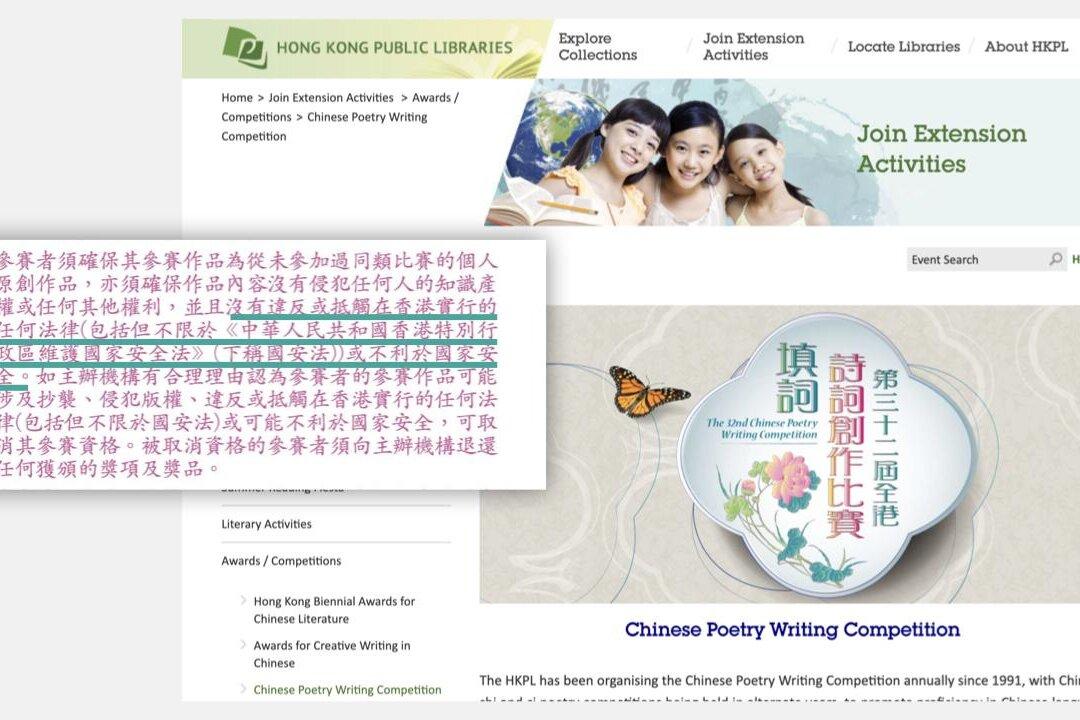A Hong Kong public library has added a “national security” clause to a poetry writing competition, reminding contestants that entries must not violate the National Security Law or be “detrimental to national security.”
After the Hong Kong Leisure and Cultural Services Department (LCSD) was found to have “DQ (disqualified)” three winning entries in the ”Hong Kong Biennial Awards for Chinese Literature,“ it was revealed recently that the public library had added a ”national security“ compliance clause to two competitions for the first time. As part of the requirement for articles joining the competition, the entries must not violate the ”National Security Law“ or be ”detrimental to national security.“ Some educators believe that the LCSD wants to draw a line with the contestants and put all legal responsibilities for ”national security“ onto the latter. Some former district councillors criticized that the addition of such a clause violates UNESCO’s “Public Library Manifesto,” which states that “the public library, and its collections and services, is free from any form of ideological, political or religious censorship.”




